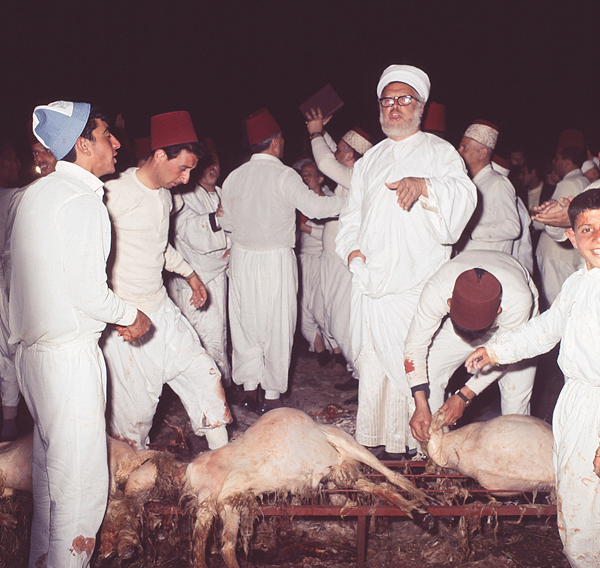Image Details

David Harris
The sacrifice of the Passover lamb is conducted annually on Mt. Gerizim, in Nablus (ancient Shechem), in the West Bank, by the Samaritans, a religious group that split from Judaism by the second century B.C.E. The Samaritans retained the Torah (the Five Books of Moses) as their Scripture, although with some alterations. The Samaritan Bible refers to Mt. Gerizim, not Jerusalem, as the center of worship. The text also includes an 11th commandment in which the Israelites are instructed to build an altar on Mt. Gerizim.
In both Jewish and Samaritan traditions, the roots of the Passover sacrifice lie in Exodus 12, in which God instructs the Israelites in Egypt to sacrifice a lamb at twilight, before the sun sets. In the evening, the Israelites are to eat the lamb with unleavened bread and bitter herbs. The lamb’s blood should be swabbed on their doors: “For that night I [the Lord] will go through the land of Egypt and strike down every firstborn in the land of Egypt, both man and beast And the blood on the houses where you are staying shall be a sign for you: when I see the blood I will pass over you, so that no plagues will destroy you when I strike the land of Egypt.
“This day shall be to you one of remembrance: you shall celebrate it as a festival to the Lord throughout the ages; you shall celebrate it as an institution for all time. Seven days you shall eat unleavened bread” (Exodus 12:12–15).
